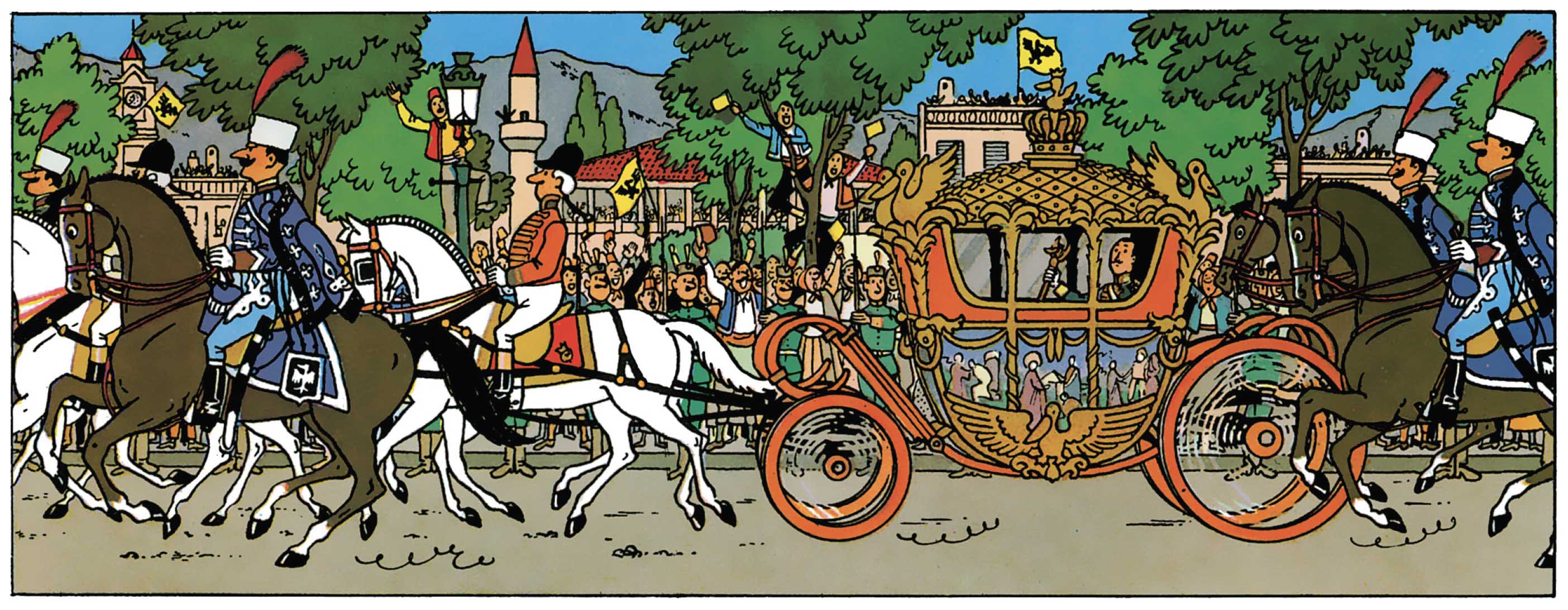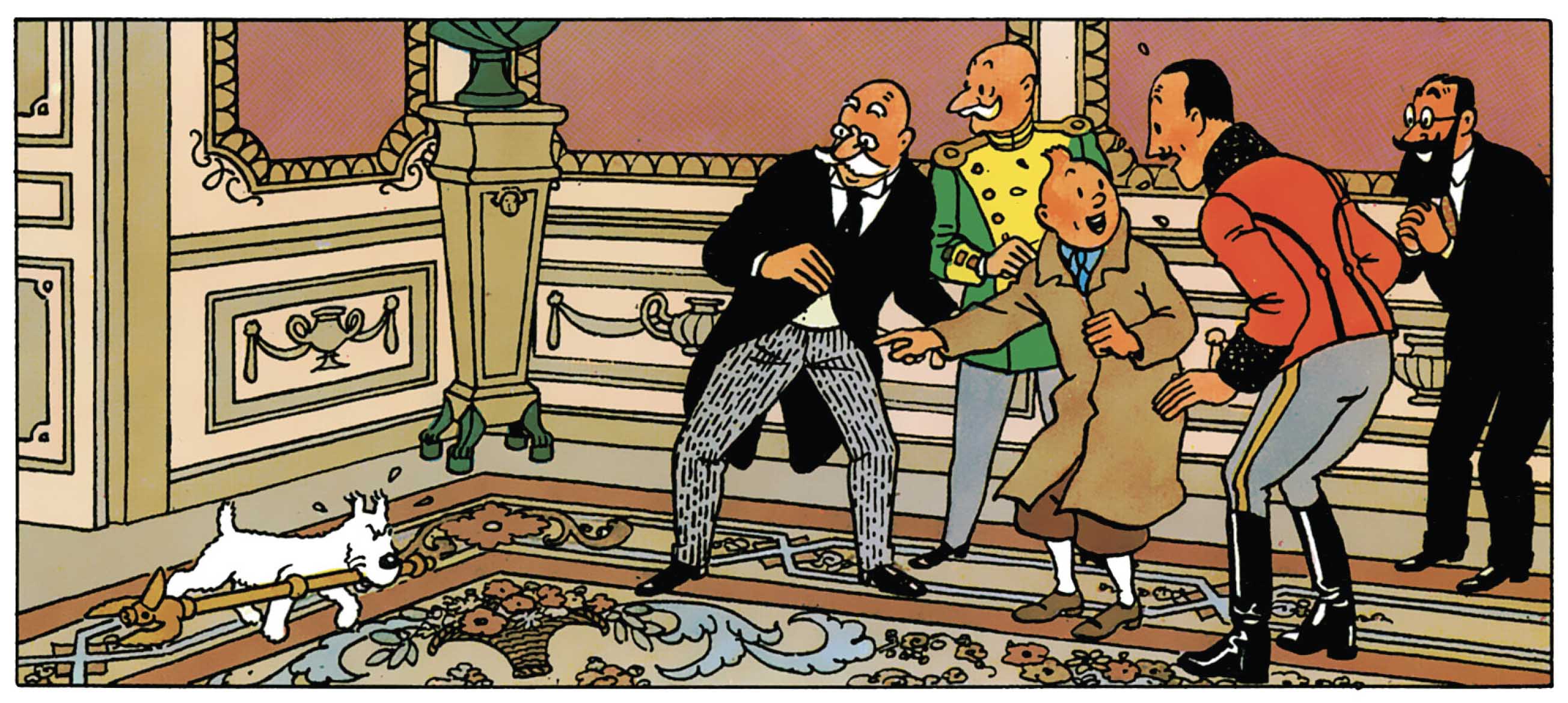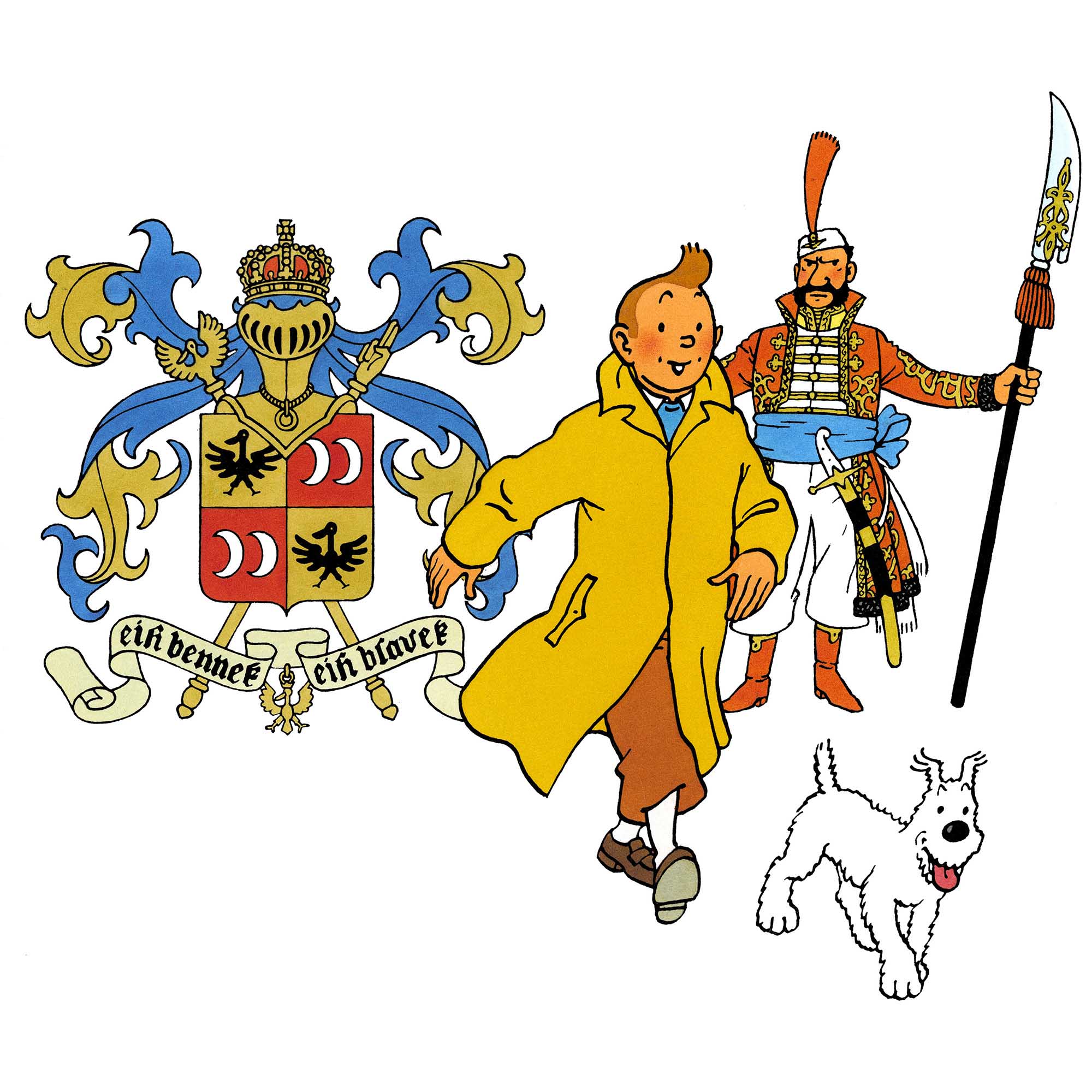Syldavia in Celebration!
Among the many fictional countries created by Hergé in The Adventures of Tintin, Syldavia holds a special place. This small Balkan kingdom, rich in traditions, folklore, and history, celebrates each year a major national event: Saint Wladimir’s Day. Though a secondary element in the plot of King Ottokar’s Sceptre, this celebration offers a fascinating glimpse into local culture.
A National Day Full of Symbolism
The Syldavian national day is celebrated every 15th of July in honor of Saint Wladimir, the kingdom’s patron saint. On this occasion, King Muskar XII parades in full ceremonial attire aboard a splendid vintage car, waving to the cheering crowds lining the streets of Klow, the capital. Saint Wladimir’s Day is both a religious and royal celebration, deeply rooted in values of loyalty, tradition, and national identity.

But in King Ottokar’s Sceptre, Saint Wladimir’s Day is more than a simple commemoration. It also becomes the stage for an attempted coup d’état, orchestrated by agents from neighboring Borduria, aiming to destabilize the Syldavian kingdom. The plot revolves around the disappearance of the royal sceptre, a powerful symbol of legitimate authority. According to ancient Syldavian law, if the king does not possess the sceptre on Saint Wladimir’s Day, he automatically loses his throne.
Thanks to the decisive intervention of Tintin and Snowy, the sceptre is recovered just in time, allowing King Muskar XII to keep his crown and preserve the country’s independence. This makes Saint Wladimir’s Day not only a moment of national pride and celebration, but also a pivotal episode in the defense of Syldavian sovereignty.

Hergé drew inspiration from Central and Eastern European countries to create Syldavia. The name “Wladimir” likely refers to Vladimir I (also known as Vladimir the Great or Saint Vladimir), a historical figure of the Eastern Slavic world who was canonized for bringing Christianity to Kievan Rus. By making Wladimir the patron saint of Syldavia, Hergé firmly grounds his fictional kingdom in a believable Balkan mythology, rich with historical and religious references.
Happy Saint Wladimir’s Day to all!

Texts and pictures © Hergé / Tintinimaginatio - 2025




 News
News Forums
Forums E-books
E-books


